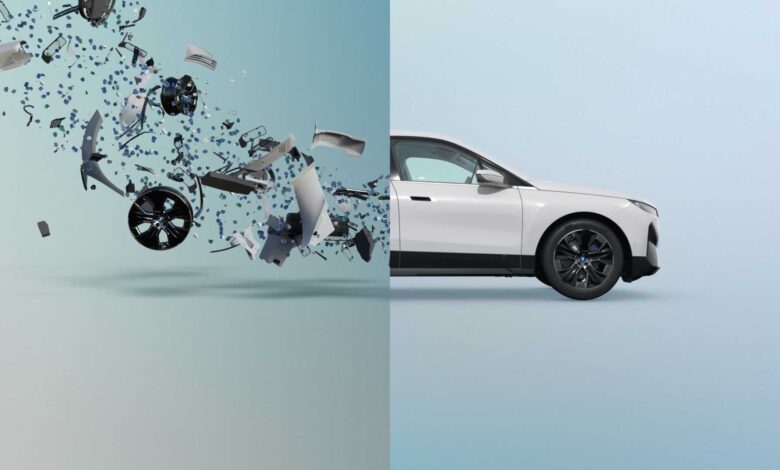How Auto Recycling Benefits the Economy and Environment

Introduction
When you think of a junk car, you might see it as nothing more than an eyesore or a useless heap of metal. However, that old vehicle sitting in your driveway has more value than you might realize. Beyond providing a quick payout when sold to a junk car buyer in South Florida, recycling your car has significant economic and environmental benefits.
Auto recycling is a crucial process that contributes to resource conservation, reduces waste, and supports sustainable practices. This article explores the multifaceted benefits of auto recycling, showing how turning in your junk car can positively impact both the economy and the environment.
The Economic Impact of Auto Recycling
Recycling vehicles plays an essential role in the economy, creating jobs, saving resources, and contributing to various industries. Here’s how the process generates economic value:
1. Job Creation
The auto recycling industry is a significant source of employment. From the workers who dismantle vehicles to those who manage recycling facilities, the process of breaking down and repurposing junk cars provides jobs for thousands of people across the country.
- Diverse Opportunities: Auto recycling creates employment in various sectors, including transportation, logistics, materials processing, and sales. The industry supports a wide range of roles, from skilled labor to administrative positions, contributing to the overall economy.
2. Resource Conservation
Recycling vehicles helps conserve valuable natural resources. Metals like steel and aluminum, which are used extensively in car manufacturing, can be reclaimed from old vehicles and reused in the production of new ones. This reduces the need to mine and process raw materials, which is both costly and environmentally damaging.
- Energy Savings: The process of recycling metals uses significantly less energy than producing new metal from raw ore. For example, recycling steel saves up to 74% of the energy required to produce it from virgin materials. These energy savings translate into lower production costs, which can have a ripple effect throughout the economy.
3. Boosting Related Industries
The auto recycling industry supports other sectors by providing affordable materials for manufacturing and construction. Recycled metals, plastics, and rubber are sold to various industries, reducing their material costs and enabling them to offer competitive prices for their products.
- Supply Chain Support: By supplying affordable raw materials, auto recycling helps stabilize supply chains, making it easier for manufacturers to produce goods at lower costs. This can lead to more affordable products for consumers and increased demand for recycled materials.
Environmental Benefits of Auto Recycling
In addition to its economic advantages, auto recycling is a powerful tool for environmental protection. The process helps reduce pollution, conserve resources, and minimize waste. Here’s how recycling your junk car benefits the planet:
1. Reducing Waste and Landfill Use
Junk cars that aren’t recycled often end up in landfills, where they take up valuable space and contribute to environmental degradation. Auto recycling helps divert millions of tons of waste from landfills each year by breaking down vehicles into reusable components.
- Material Recovery: The recycling process extracts valuable materials like steel, aluminum, copper, and rubber, which can be reused in new products. This not only reduces the amount of waste sent to landfills but also ensures that these materials are put to good use rather than being discarded.
2. Lowering Greenhouse Gas Emissions
The production of new materials from raw resources is energy-intensive and generates significant greenhouse gas emissions. Recycling reduces the need for new material production, thereby lowering the carbon footprint associated with manufacturing.
- Emissions Reduction: Recycling a single ton of steel can save 1.8 tons of carbon dioxide emissions compared to producing the same amount from raw materials. By recycling junk cars, we can significantly reduce the amount of carbon dioxide released into the atmosphere, helping to combat climate change.
3. Conserving Natural Resources
Auto recycling plays a vital role in conserving natural resources, such as minerals, fossil fuels, and water. By reusing materials from old vehicles, we reduce the need for resource extraction, which often leads to habitat destruction, pollution, and resource depletion.
- Sustainable Use of Resources: The recycling of metals like aluminum and steel reduces the demand for mining operations, which can have devastating effects on ecosystems. Additionally, recycling reduces water usage, as the production of new materials from recycled content generally requires less water than processing raw materials.
4. Proper Disposal of Hazardous Materials
Junk cars contain various hazardous substances, including motor oil, antifreeze, brake fluid, and battery acid. If not disposed of properly, these materials can leak into the soil and water, causing environmental contamination.
- Environmental Protection: Auto recycling facilities are equipped to safely remove and dispose of hazardous materials. By recycling your car through a professional service, you ensure that these substances are handled responsibly, protecting the environment from potential harm.
The Recycling Process: From Junk Car to New Product
Understanding the journey of a junk car through the recycling process highlights the value of recycling and the extensive benefits it provides. If you’re considering recycling your vehicle, exploring all junkyards near me can help you find the most reliable options for environmentally friendly disposal and potential resale of parts.
1. Dismantling and Sorting
The first step in the recycling process involves dismantling the vehicle to remove valuable parts and materials. Components such as engines, transmissions, and radiators can often be refurbished and resold. Other parts, like tires and batteries, are removed for separate recycling processes.
- Parts Resale: Reusable parts are cleaned, tested, and sold as replacement parts for other vehicles. This extends the life of automotive components and reduces the demand for new parts manufacturing.
2. Crushing and Shredding
Once the valuable parts are removed, the remaining vehicle structure is crushed and shredded. The shredding process breaks the car down into small pieces, which are then sorted into different material types, such as steel, aluminum, and plastic.
- Material Separation: Advanced technologies, including magnets and air classifiers, are used to separate ferrous (iron-containing) and non-ferrous metals, as well as other materials like plastics and glass.
3. Material Recycling
After sorting, the recovered materials are sent to processing facilities where they are melted down and repurposed into new products. For example, recycled steel can be used to manufacture new cars, appliances, and construction materials.
- New Product Creation: The materials recovered from recycled cars are used in a wide range of industries, contributing to the production of everything from consumer goods to infrastructure projects. This closed-loop recycling process minimizes waste and promotes the sustainable use of resources.
4. Environmental Compliance
Throughout the recycling process, facilities must adhere to strict environmental regulations to ensure that all hazardous materials are managed responsibly and that emissions are kept to a minimum.
- Regulatory Oversight: Auto recycling facilities are subject to regular inspections and must comply with environmental standards set by government agencies. This ensures that the recycling process is conducted in an environmentally responsible manner, protecting both workers and the surrounding community.
Encouraging Sustainable Practices Through Auto Recycling
Auto recycling is more than just a way to dispose of old vehicles—it’s a key component of a sustainable economy. By choosing to recycle your junk car, you’re contributing to a cycle of resource conservation, waste reduction, and environmental protection.
1. Supporting a Circular Economy
The concept of a circular economy revolves around keeping resources in use for as long as possible. Auto recycling is a perfect example of this principle in action, as it reclaims valuable materials and returns them to the manufacturing cycle.
- Reducing Waste: By turning old cars into new products, we reduce the need for virgin materials and minimize waste. This approach not only conserves resources but also reduces the environmental impact of production and disposal.
2. Raising Awareness
Promoting the benefits of auto recycling can encourage more people to participate in sustainable practices. As more consumers become aware of the positive impact of recycling, demand for recycled products and services will increase, driving further innovation and sustainability in the industry.
- Educating the Public: Public awareness campaigns, educational programs, and community initiatives can help spread the word about the importance of auto recycling. By educating consumers, we can create a culture of sustainability that extends beyond the automotive industry.
3. Contributing to Environmental Stewardship
By recycling your junk car, you’re taking an active role in environmental stewardship. This simple action has far-reaching effects, helping to protect natural resources, reduce pollution, and promote a healthier planet for future generations.
- Personal Impact: Every car recycled is a step toward a more sustainable future. By making environmentally conscious choices, you contribute to a collective effort to preserve the planet’s resources and protect the environment.
Conclusion
Auto recycling is a powerful tool for driving economic growth and promoting environmental sustainability. By recycling your junk car, you’re not only getting rid of an old vehicle but also contributing to a process that conserves resources, reduces waste, and supports a greener future.
Choosing to recycle is an investment in both the economy and the environment, ensuring that valuable materials are reused and that the negative impacts of waste are minimized. Whether you’re motivated by environmental concerns or simply looking to clear space in your driveway, auto recycling offers a solution that benefits everyone.



